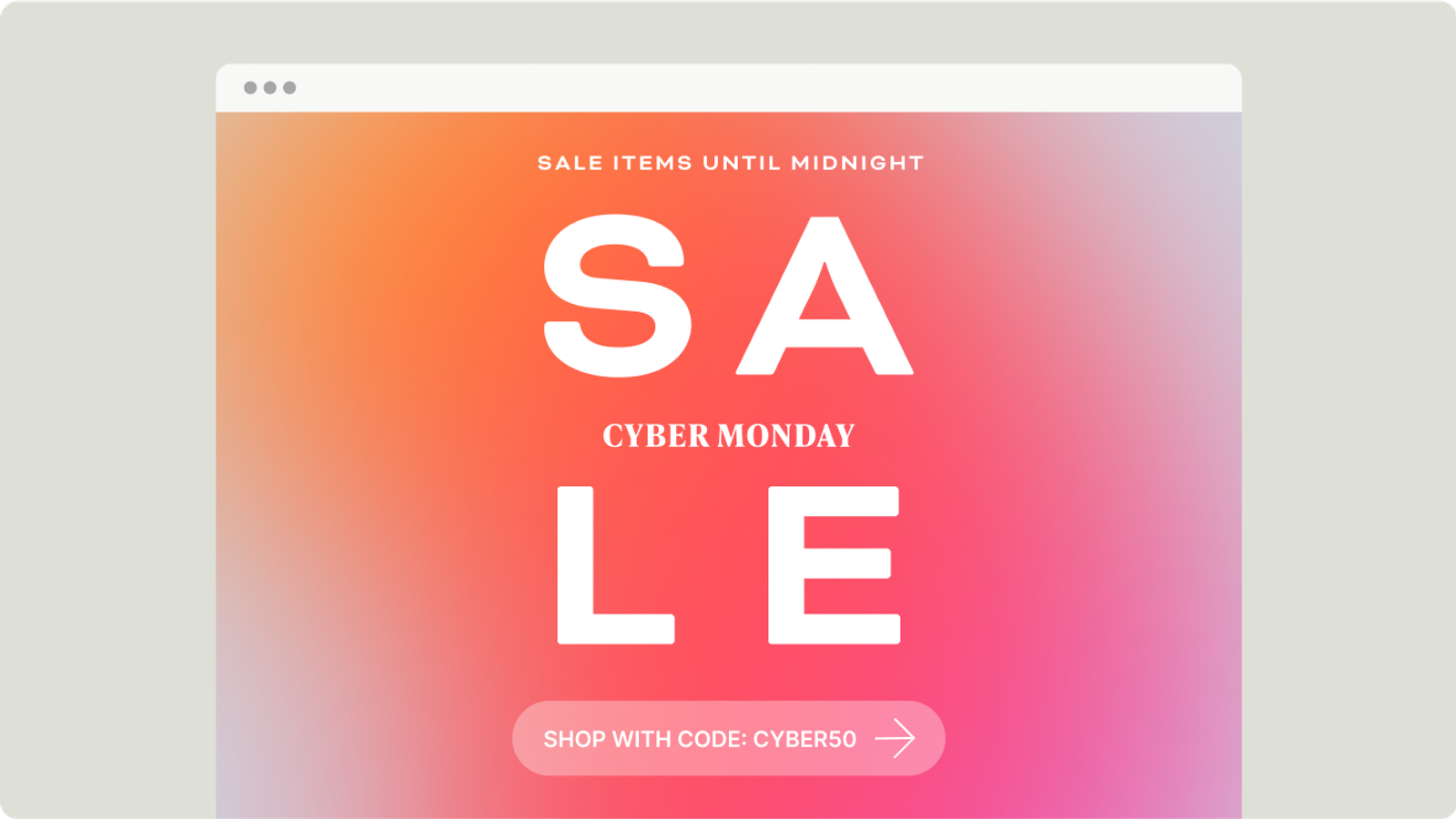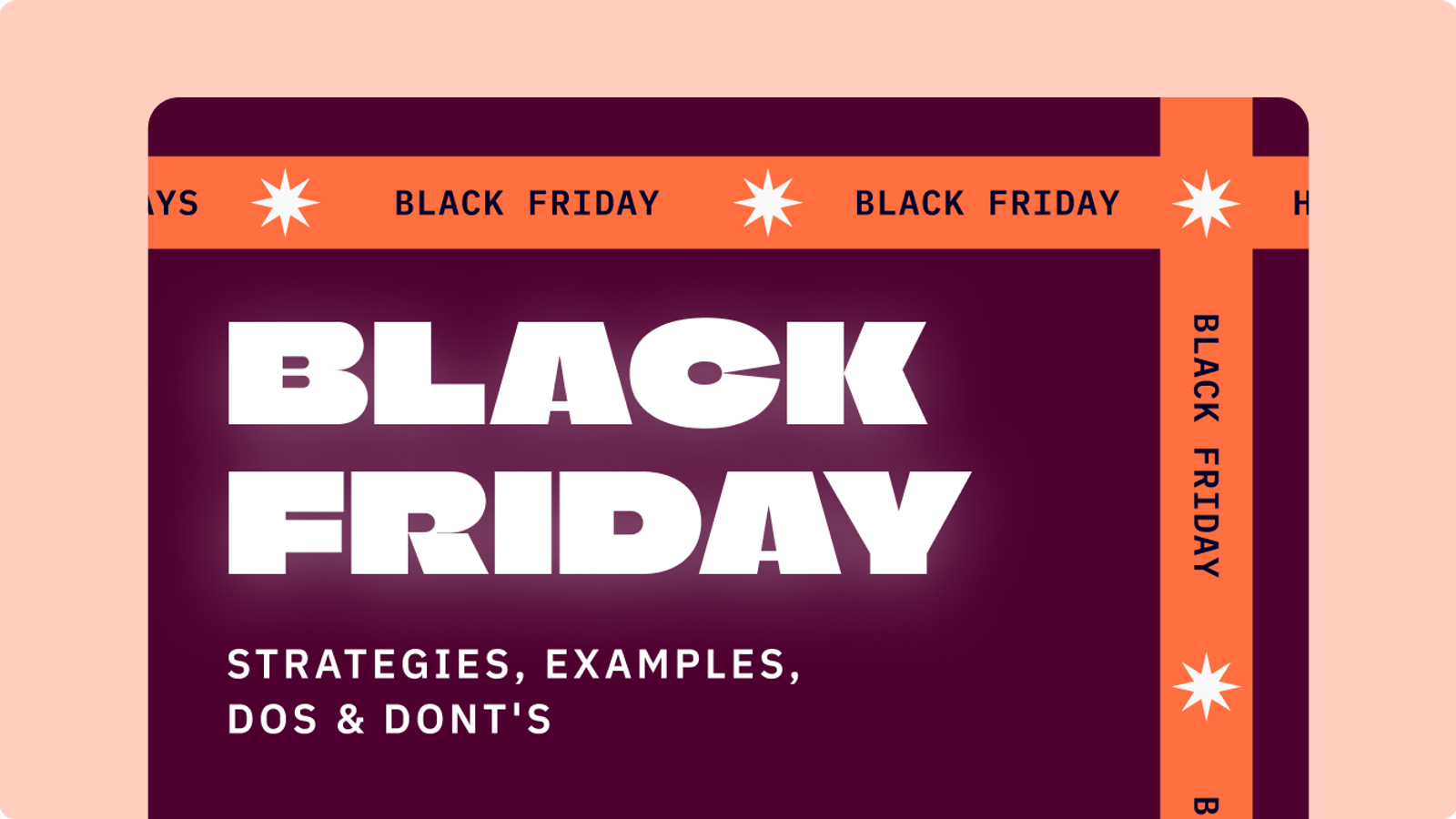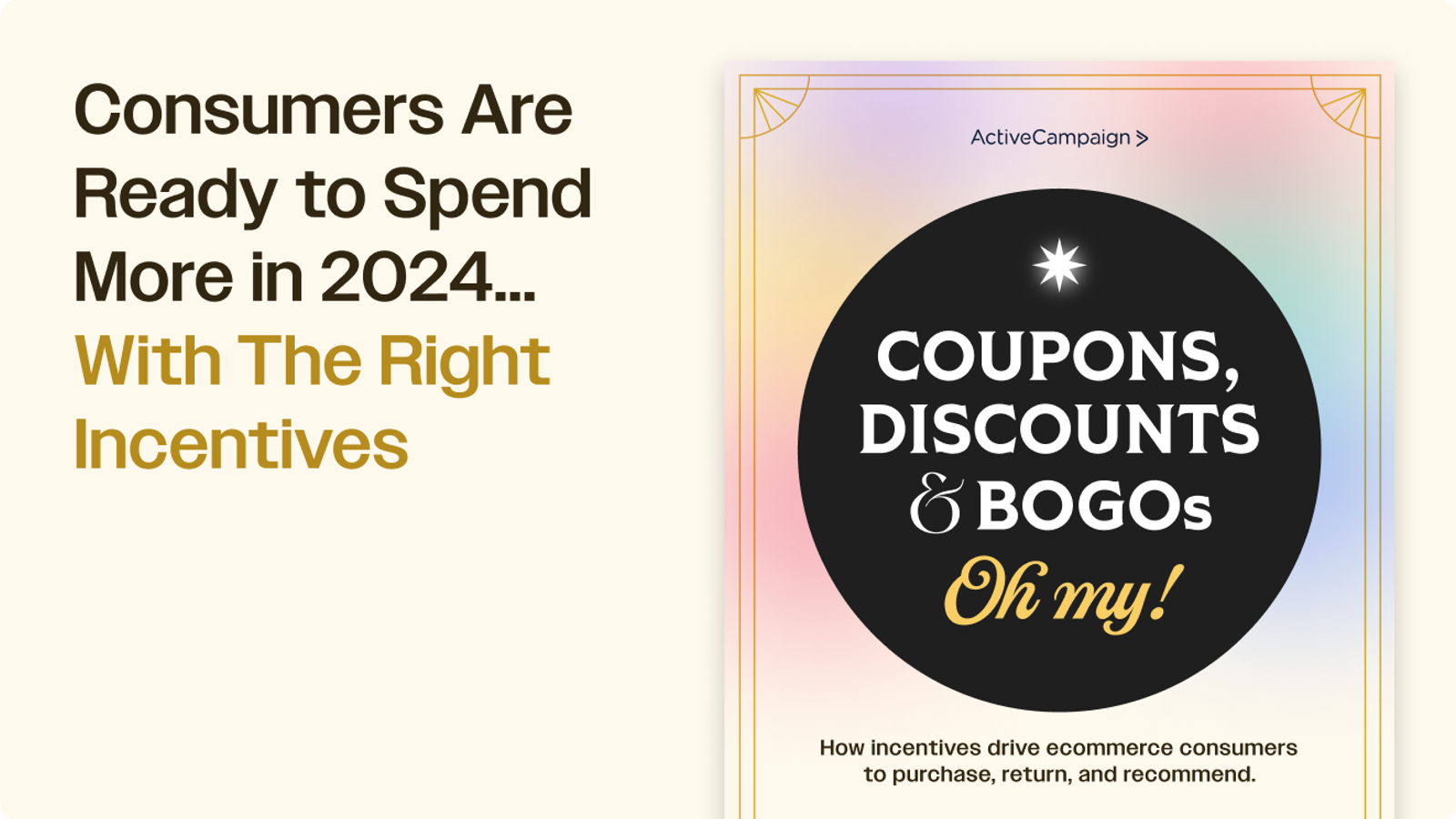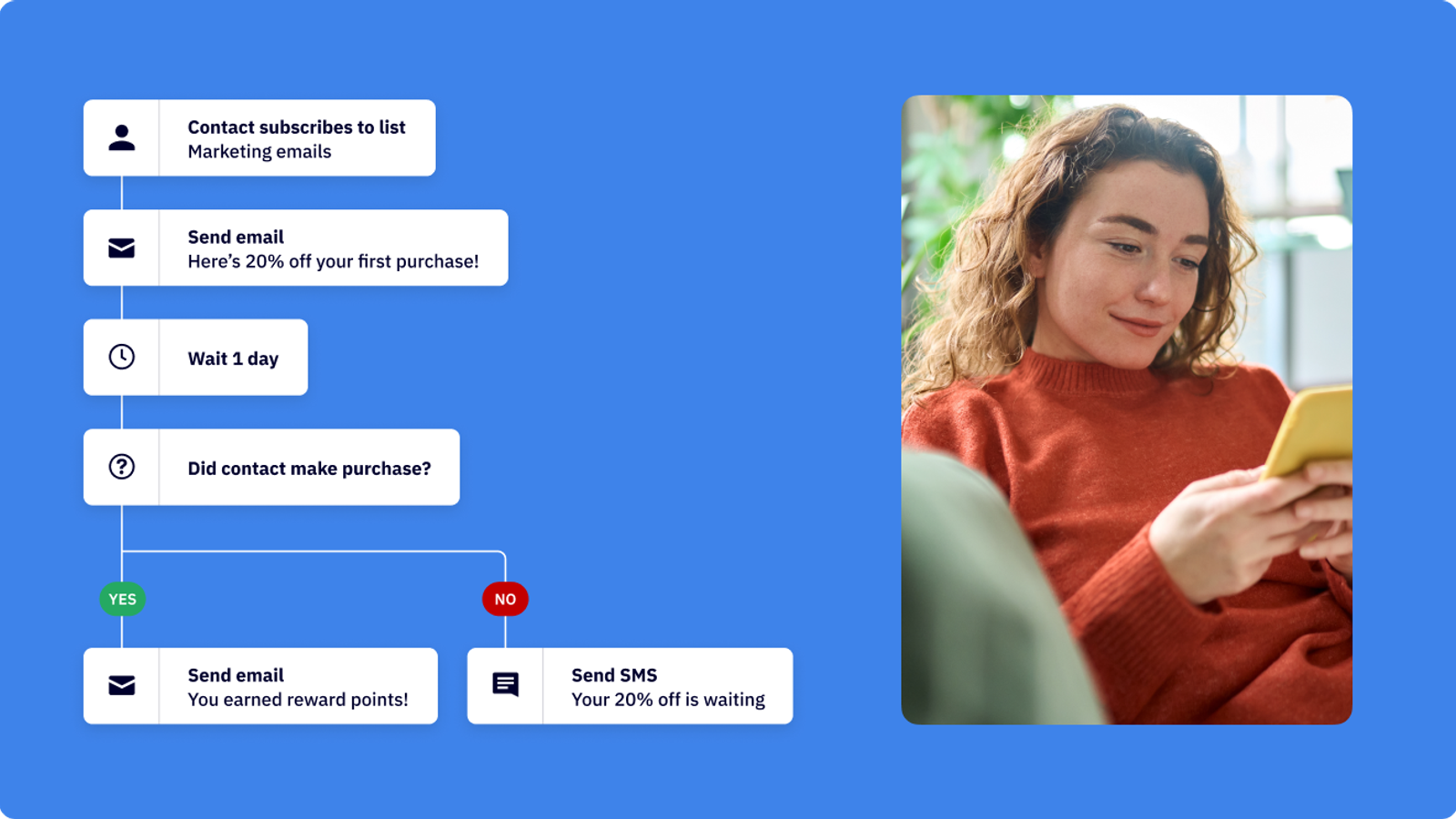Channel marketing ≠ marketing channels.
A marketing or sales channel is a portal that you use to promote your business, like:
- Social media
- Automated email marketing
- Events
- Organic SEO
And yes, you do use marketing channels within your channel marketing efforts. But channel marketing is an entire area of marketing on its own.
In this post, you get to learn:
- What is channel marketing (and who does it help)?
- How to choose your channel marketing partners: the two questions you need to ask—and answer
- The single, most important thing to your channel marketing partners
What is channel marketing?
Channel marketing is a practice that involves having other parties (either businesses or individuals) sell your product or service.
For instance, if you’re a SaaS software company with a new sales CRM. You might work with channel partners specializing in developing custom IT solutions who can resell your CRM as one of the products they integrate into their solution.
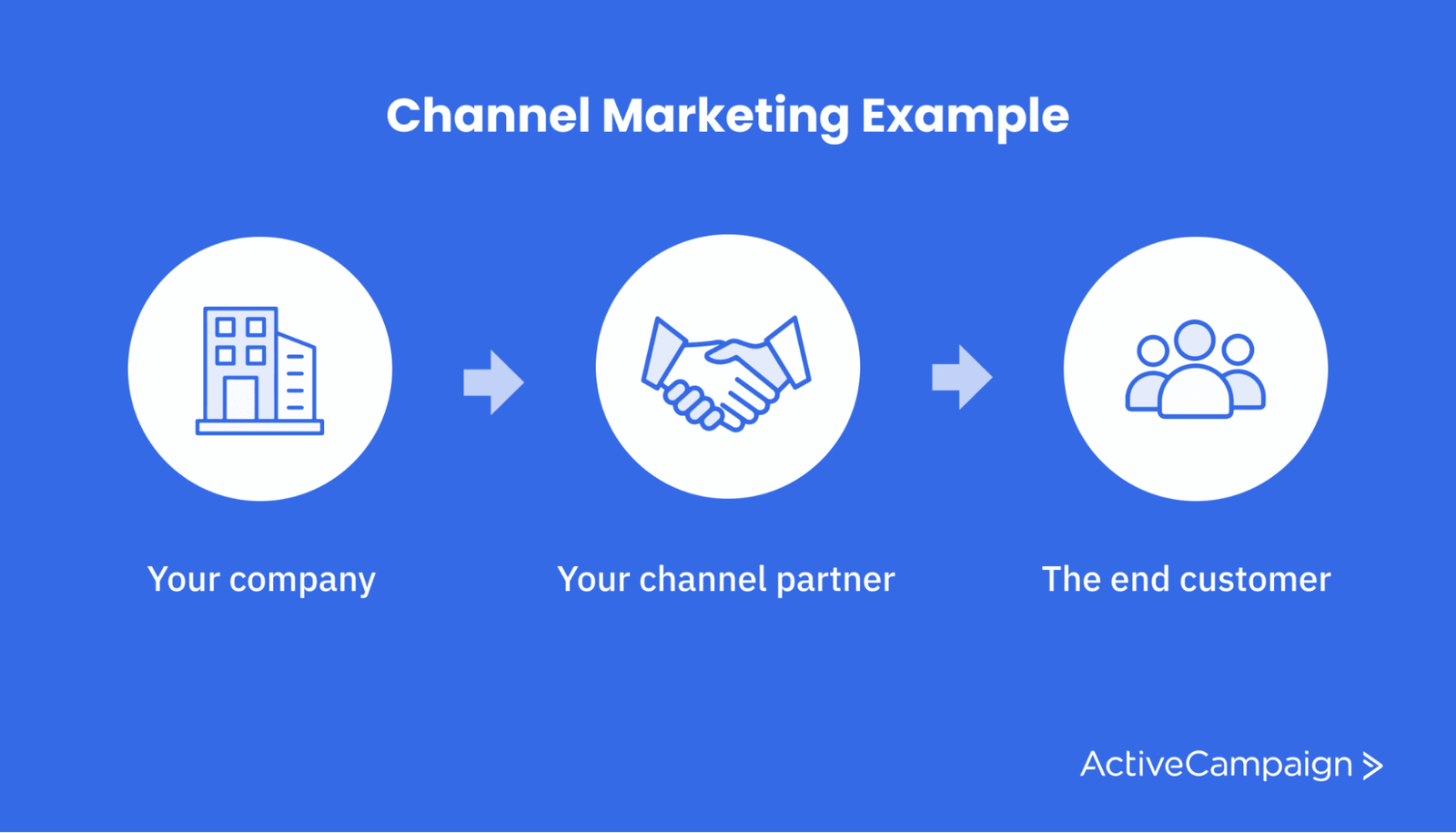
Channel marketing partners help you sell the advantages of a product to customers. The channel partners you work with in channel marketing can be groups like:
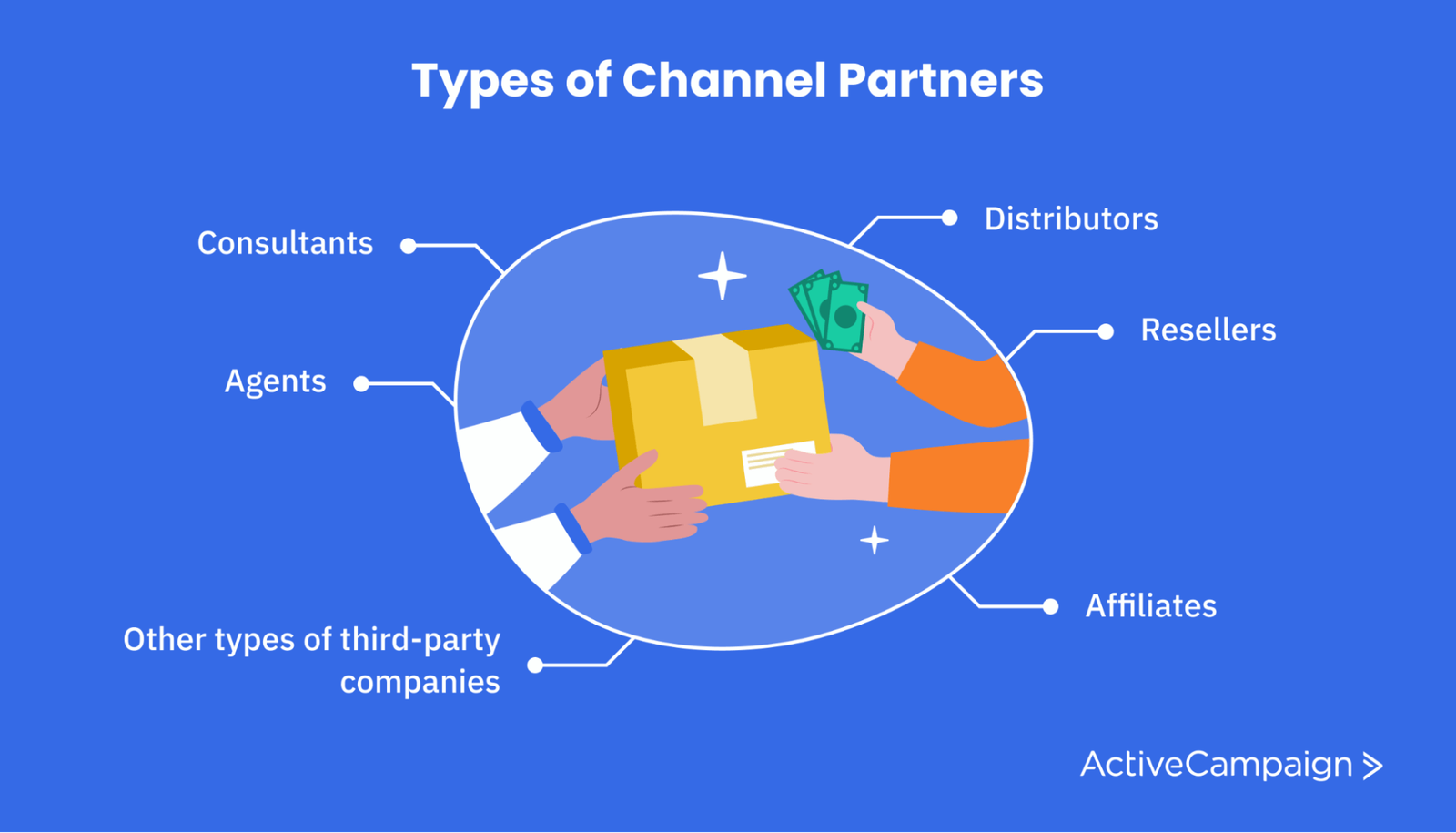
The key to channel marketing is a mutually beneficial relationship between you and your channel marketing partners.
Channel marketing is different from just promoting your product through advertising and marketing channels. Often, channel partners are businesses in and of themselves—so when you have multiple channel partners, you really have multiple separate companies selling the same product.
The key benefit of channel marketing is that your products can reach audiences you would otherwise not have access to.
Your partners benefit, too—typically, you’ll give them a percentage of product sales or a discount on bulk purchases (that they then resell).
Channel marketing is a way for you and your partners to help each other reach the same goal—to sell and help people. If you don’t have the resources to do sales and marketing outreach all by yourself, channel marketing with the right partners can help.
What are the common types of channel marketing partners?
For channel marketing to work at all, you need partners, such as resellers, affiliates, and consultants.
Resellers create their own pricing and manage their own accounts. They get the benefit of using your product and the benefits that come from selling your product to their network.
A reseller can:
- Whitelabel your service (i.e., remove your branding) to sell as their own, which helps promote their own business.
- Control how much they sell for. The more they sell, the more their use of your service is discounted—which means more money in their pocket.
- Have their own direct point of contact at your business to make sure they know how to use and sell your product, someone like an account manager.
You might have encountered resellers without realizing it:
- Amazon is one type of reseller. Amazon resellers buy products in bulk and sell them on Amazon themselves.
- Software companies often let other businesses white label their products, especially when those businesses customize the software before reselling it to their clients.
- Many mattress manufacturers offer white labeling. When you walk into a mattress store, you’re likely to see brands that are “unique” to the store—because they’ve actually been white-labeled and renamed.
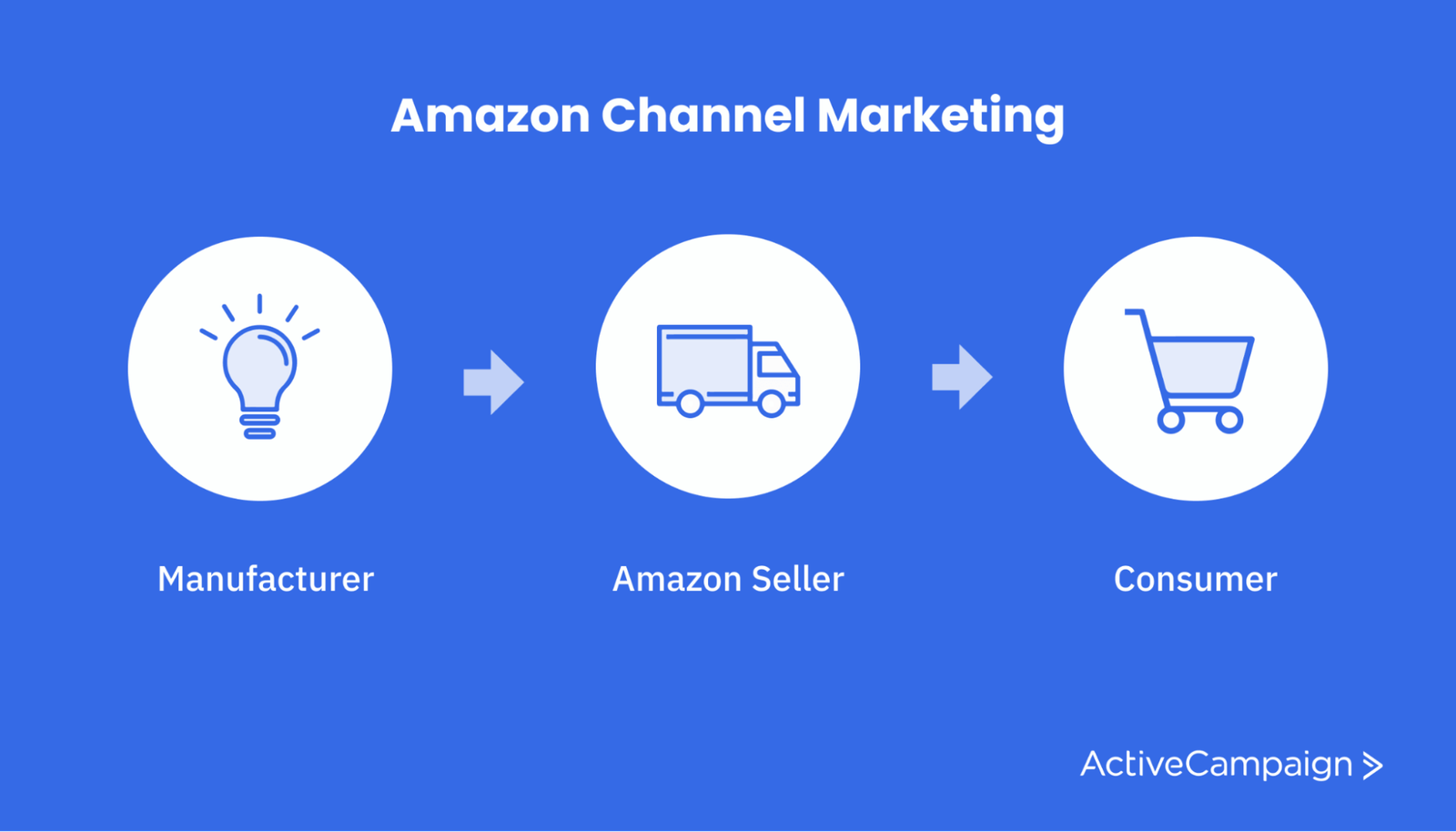
Affiliates are partners who give you referrals via links to your site. You provide them with a custom web link so affiliates can share via their websites, ads, and content. An affiliate earns a commission based on how much the link gets clicked.
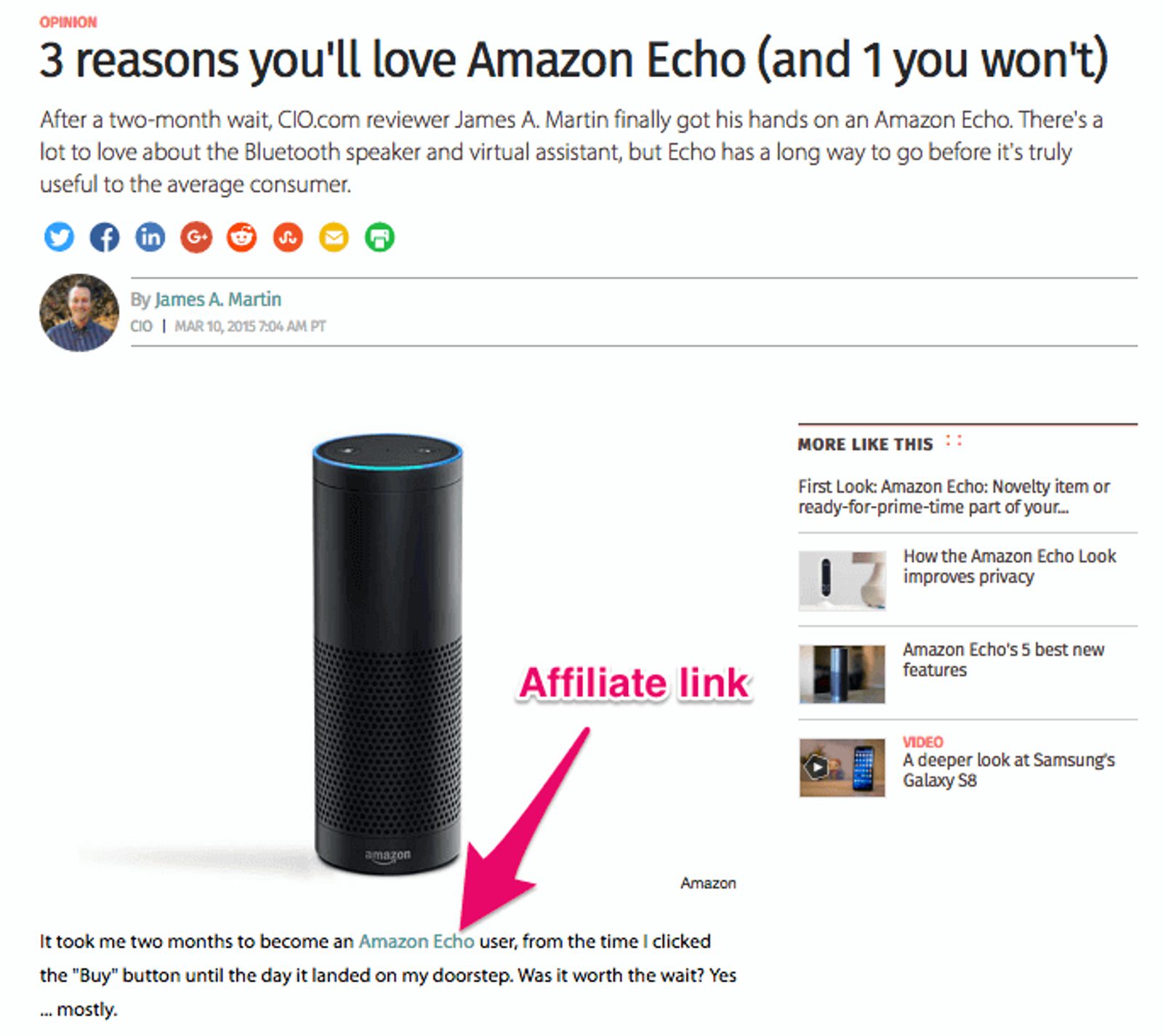
This blog includes an affiliate link to Amazon Echo. The clicks on this link give the writer, James, a commission.
Affiliates are often content creators and subject matter experts. They can put your link into blog content or web pages that make sense. This kind of channel marketing partner gets the benefit of more visitors and a commission, and you get more traffic and sales for your business.
Consultants typically work directly with your business’s customers to help them use your service most effectively. Like an affiliate, a consultant can also earn a commission to promote your business.
They can also contribute to your business promotion by:
- Being an expert resource that you can refer your customers to
- Creating guest content—you get good content, and consultants get good recognition
- Putting on events to help educate your customers
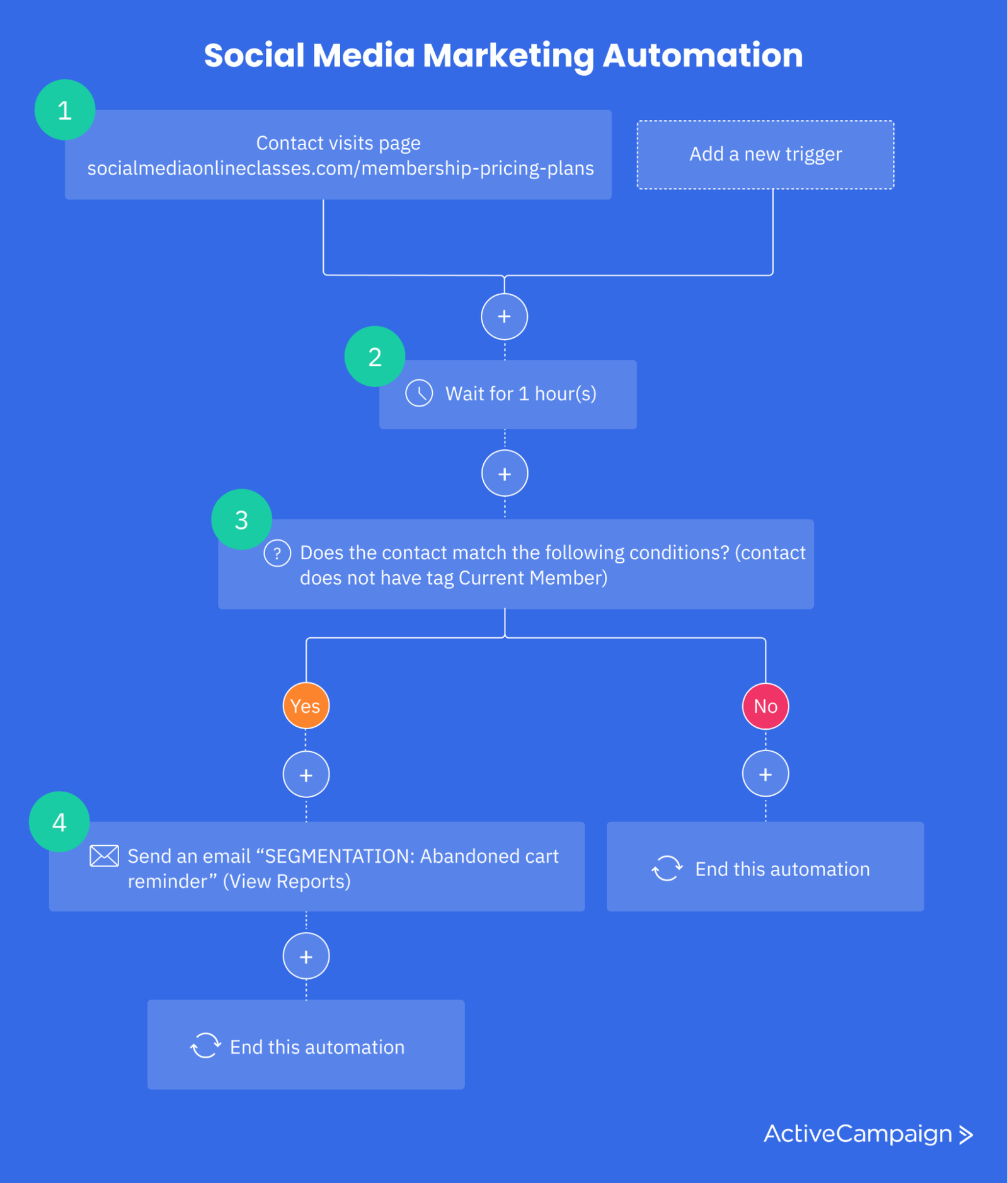
Keeping track of your channel marketing contacts is the first step in creating a solid partnership. ActiveCampaign makes it easy to keep all of this information in one place.
Discover how you can use ActiveCampaign to manage your partnerships seamlessly.
The 4 types of channel marketing relationships
There are four types of channel marketing relationships, which can include resellers, affiliates, consultants, distributors, and other partner types. They are:
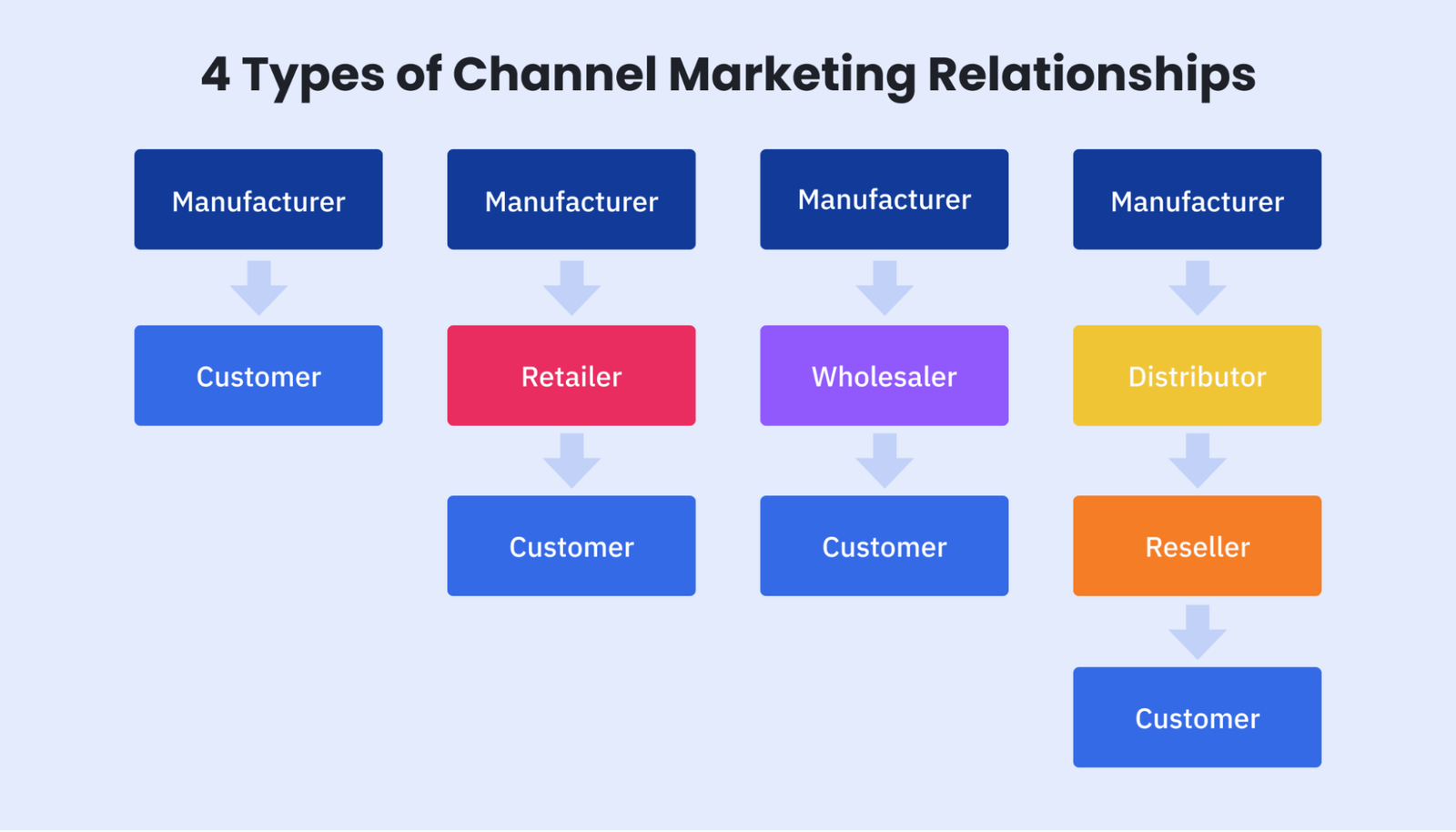
- Manufacturer to customer: The manufacturer creates the goods and sells them directly to the consumer. It’s cost-effective and profitable for both sides. Reach consumers directly from the manufacturer. This is like a baker directly selling pastries to consumers.
- Manufacturer to retailer to customer: The manufacturer creates goods and sells them to a retail business, which then sells to a customer—like clothing at a retail store.
- Manufacturer to wholesaler to customer: A manufacturer creates goods and sells them to a wholesale seller who sells them at a reduced cost to customers—Like good old Costco.
- Manufacturer to distributor to reseller to customer: A manufacturer creates goods that a distributor takes to like-minded businesses. Resellers then buy from these businesses and sell to customers alongside their own products. This is like a laptop company partnering with a distributor to spread the reach of their product, then resellers buying those laptops and selling to customers with a printer or wifi package.
How do you develop a channel marketing partnership?
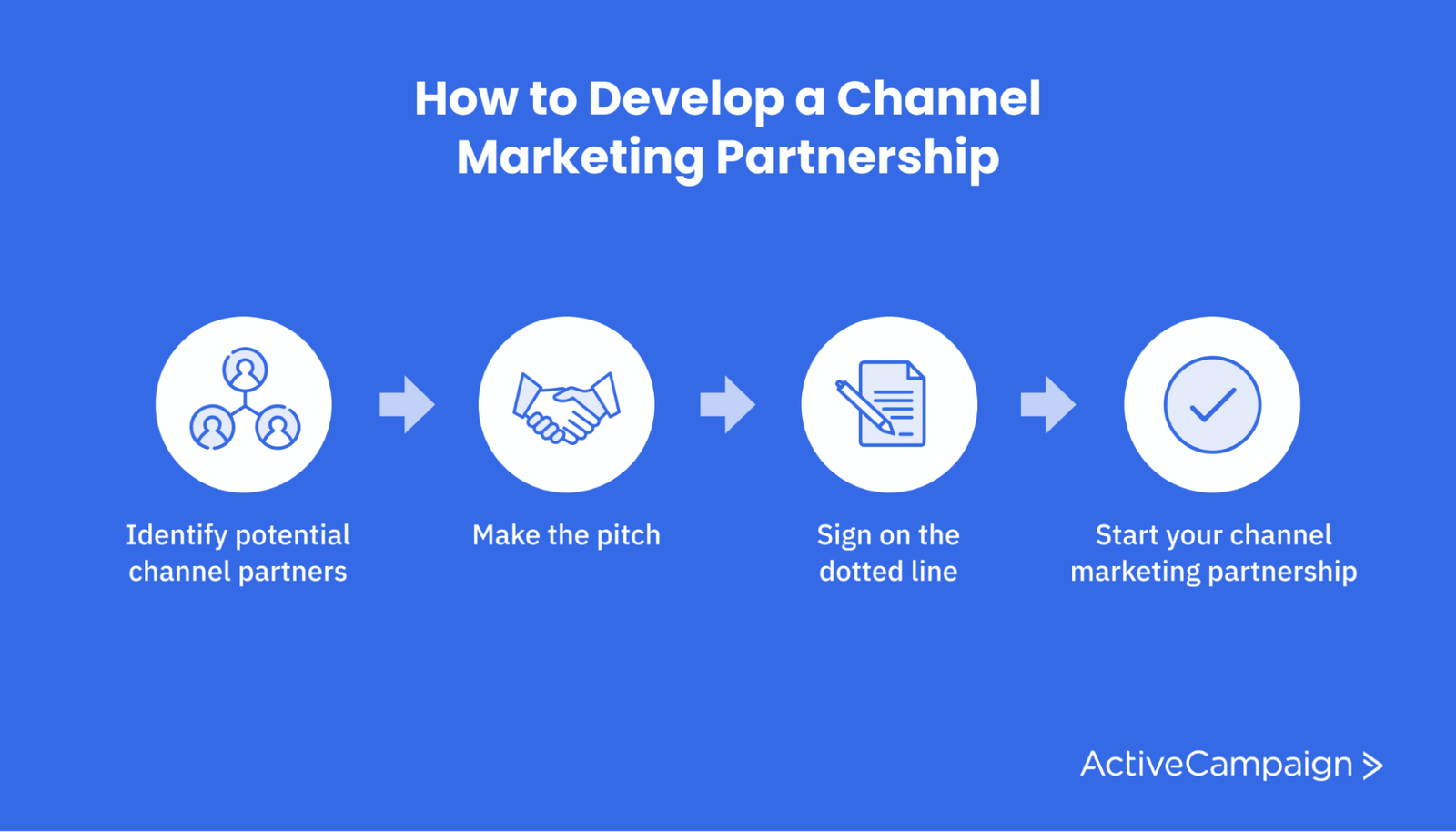
- Identify potential channel partners. This involves carefully analyzing the products they sell and the markets they sell in. The analysis must be thorough and technical and compare hard market data to find the right partner (See also Analytical Marketing).
- Make the pitch. What would you want to hear from a potential partner? Convince a potential partner that a channel partnership would benefit both of you. Make sure you don’t get stuck on just the benefits—talk about why they are benefits.
- Sign on the dotted line. Write an agreement with all the details clearly spelled out. The only way for a channel partnership to work is for all of the details to be agreed upon in a contract before the partnership begins.
- Start your channel marketing partnership! Start your plan to promote your service with your new channel marketing partner.
How to choose your channel marketing partners
I scratch your back and you scratch mine.
This is the idea behind using channel marketing as part of your overall sales and marketing strategy. You need to have channel marketing partners you can trust to promote your business—while also ensuring that they get what they need from you to make it worthwhile.
So, how do you know who you should partner with?
When choosing your channel marketing partners (AKA resellers, affiliates, consultants, distributors) to promote your service, you should be able to answer two questions:
- What’s in it for them?
- What’s in it for you?
Why should they care about being your channel partner over someone else’s? A partner wants to work with a business that gives them the most opportunities for growth.
You might think it’s easy to answer, “What’s it in it for you” with a simple, “duh, sales!” But it’s more than that.
So, what’s in it for them? It could be…
- A discount on your service
- More traffic to their website
- Featured content from them on your website
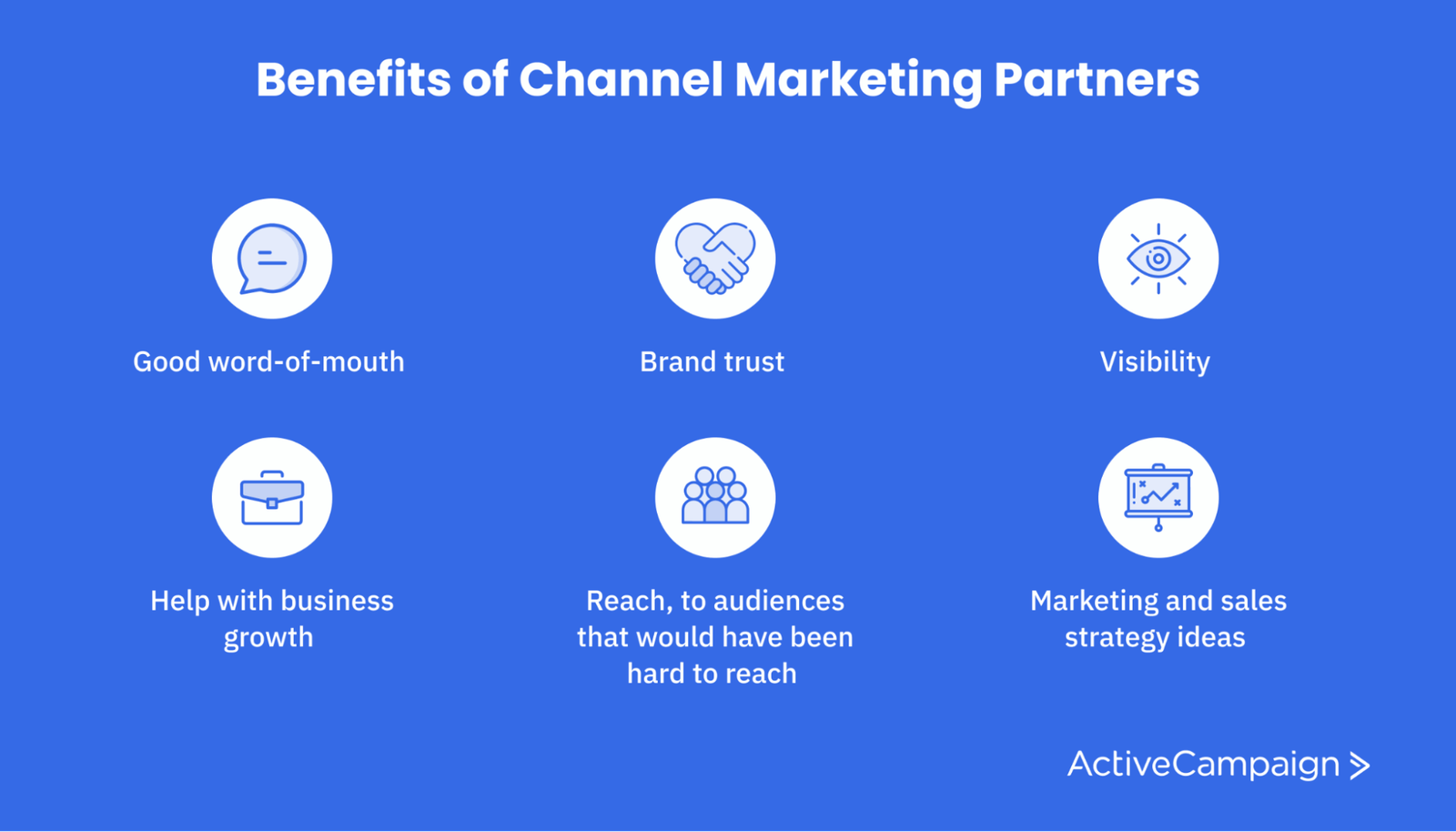
The next question is, what’s in it for you?
Choosing the right partner is critical to developing a successful channel marketing strategy. An appropriate channel partner will increase your brand awareness and generate new revenue streams.
There are five factors that help determine who is going to be a top-tier channel marketing partner:
- Employee count
- Annual revenue
- Product offerings
- Niche target market
- Top of the funnel strategy and marketing spend
Here’s what else you need to look for in a potential channel marketing partner:
- Ability to strategize: Can they see both the big picture and smaller details of your channel marketing relationship?
- Similar goals: A partner’s goals should work with your own, and you should know what they are before you commit to a partnership.
- Able to adapt to change: Are you going to be able to agree on necessary changes when a plan needs to change?
- Proof of growth: What kind of growth has this potential partner accomplished in their business? Can they speak to specific sales and marketing goals they could help you meet?
- Proof of motivation: You want a partner who will actively contribute to your channel marketing plan, not someone who waits to be told what to do.
Frequently asked questions
What is the role of channel marketing?
Channel marketing’s role is to reach your target audience through partner programs (selling through third-party companies or individuals). Channel marketing programs generally exist alongside direct selling and cross-channel marketing initiatives to reach more potential customers.
What are 3 marketing channels?
Three popular digital marketing channels include:
- Social media marketing
- Content marketing
- Affiliate marketing
What is a channel marketing strategy?
A channel marketing strategy is an overarching vision behind your channel marketing program. It outlines key goals and initiatives and discusses how your channel marketing initiatives fit into your overall marketing strategy.
What is your channel marketing strategy?
Keep it simple.
That’s it. No dancing around, no trick questions. The bottom line is that partners don’t want to work hard to have a relationship with your business.
An obstacle course of hoops to jump through is not what your channel marketing partners need. For you both to get the channel marketing benefits you each want, here’s what they need from you:
- Motivation
- Training
- Support
- Resources
You are the primary subject matter expert between you and your channel marketing partners. Whether they are a reseller, affiliates, distributors, or consultants, the only way they will know how to best promote your service and use it themselves is if you tell them how.
You need to:
- Take the time to clearly explain why your service is worth it—so they can turn around and do the same with their community
- Follow it with a CTA. Your partners can then customize this for their customers and prospects.
Being actively involved and keeping the process simple drives new business to your partners and keeps them loyal to you.
When you do, keep it simple. Don’t throw a pile of impersonal resources at them and expect them to know what to do. Most partners will want you to tell them what they need to focus on, and many partners don’t have the ability to do multiple marketing activities at a time.
You need to consider what makes the most sense for you and for them to focus on so you can reap the benefits of a channel marketing partnership. Finding the right balance is challenging, but channel marketing offers tremendous growth opportunities.
Let us help you get started with a free trial of ActiveCampaign.



